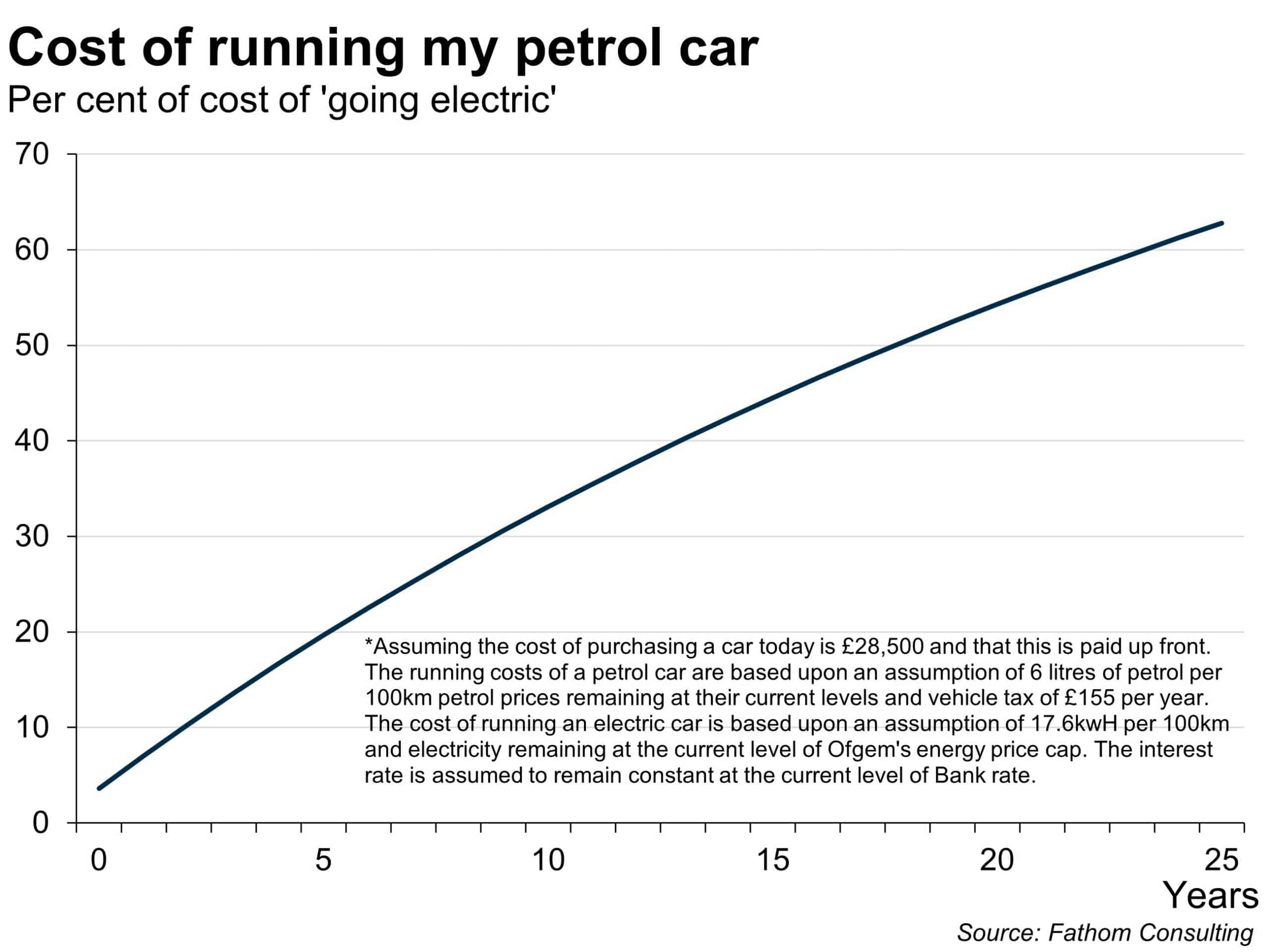A sideways look at economics
This was a question I found myself asking recently when my car battery died for the second time in a fortnight. It was nine in the evening, and with a long day of work behind me I was desperate to get to the supermarket to buy some food — it’s not hard to imagine my mood! Instead, I had a rummage in my freezer and managed to find something worth eating. I stuck it in the oven and sat down with my phone…
So, how much does an electric car cost? From my searches, I can reveal that the cost of a new vehicle seems to start at around £25,000. Obviously, there are cheaper petrol cars out there, especially if you’re willing to consider second-hand vehicles. And, as it turned out, my car doesn’t need replacing — I called the AA and it turned out that I needed a new battery, not a new car. Phew!
But the question remained in my head — should I buy an electric car? You see, it’s not just the up-front cost of a car you need to consider — how much it costs to run matters too. And electric cars are a lot cheaper to run. For example, data from Which? suggest that the Mini Electric uses roughly 17.6 kwH per 100km while a standard petrol car might use 6 litres per 100km (don’t ask what mine does — I ain’t got a clue). Taking into account the current price of electricity and last week’s petrol prices (both currently high), it seems like the cost of running an electric car is around 40% cheaper per mile. That’s a pretty hefty saving!
Of course, I would still have to buy the thing and so I’m really trading off the lower running costs against the up-front cost of a new car (in truth, selling my current one wouldn’t really rake in much cash to finance this). Based on current energy prices and interest rates, the chart below shows the cost of sticking with my current petrol car relative to the cost of switching. As it turns out, the maths suggests I probably shouldn’t buy an electric car just yet…
Of course, there are tweaks I could make that might change this result. For instance, many car parks now offer free charging for electric vehicles, and it is possible (if unlikely) that I could reduce my car’s running costs to zero! In that case, it would be cheaper to go electric. And there’re also the good feelings that accrue from doing my bit for the environment. But there are also factors pulling in the other direction; for example, spending five figures on an electric car means forgoing a lot of consumption today in exchange for greater consumption tomorrow —in reality, I prefer my jam today and not tomorrow.[1]
So where has this left me? I’m not about to buy an electric car this weekend. The up-front cost is too much for me at the moment. But the cost of renewable tech is falling rapidly and it’s not crazy to think the price of electric cars will too. If it does, then count me in!
[1] Also excluded from the calculation above is the substantial tax advantage derived from acquiring an electric vehicle as a company car. The benefit in kind (BIK) tax rate on company cars in general makes them not worth the bother. But in the case of electric cars BIK is 1% for 2021/22 and 2% for 2022/23, 30 percentage points lower than for a new petrol car.
